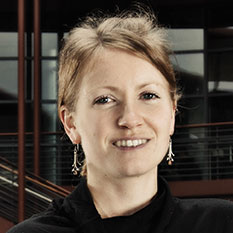M.D.’s and the ABCs of how we learn
Dan Schwartz is an expert in the science of learning — and he’s turning his attention to medical education. He’ll deliver a keynote address at Medicine X | ED 2017.
Dan Schwartz found himself unconvinced after a recent visit to his general practitioner. In for a bad wheel, he’d been given a simple diagnosis: runner’s knee.
“I had this one symptom that just didn’t fit, and I kept pointing it out,” Schwartz says. But his doctor had been firm. “She said, ‘Just do these exercises.’”
Schwartz didn’t. Instead, he went to a sports medicine clinic, where he was given a different, more compelling, explanation for his symptoms.
Relieved to have an answer, he found himself tempted to do something rather unusual: to go back to his doctor and share what he’d discovered.
Schwartz isn’t just an activated patient. (“I ask a lot of questions. I’m annoying,” he says.) He’s also dean of the Stanford Graduate School of Education and the author of a new book, “The ABCs of How We Learn.” And he understands, more than most, the importance of feedback in generating better outcomes.
“Your patient’s cured, they don’t come back. Your patient’s not cured, they don’t come back,” he says. How’s a doctor supposed to learn?
Taken generally, that’s a big question — and it’s one that Schwartz has only recently turned his attention to. (He’s quick to say he’s not an expert in the field.) But he doesn’t have to dig deep for starting points.
Take, for example, the importance of context. We’re more likely to use knowledge when we’re in an environment that resembles the one where we learned it.
Marily Oppezzo, a former PhD student at Stanford, used this trick to experiment with a new way of training doctors to talk about the dangers of e-cigarettes. Instead of showing them a standard PowerPoint lecture, she created a branching, interactive video that put them face-to-face with actor-patients. The doctors could pause the virtual interactions at critical points, where they needed information, and return to suggest a course of action when they felt prepared to do so. The video would branch from there.
Another potential target: assessments. Ineffective tests measure routine recall; good ones also focus on the processes of learning and problem solving. Schwartz would love to see physicians-in-training presented with a set of symptoms that all point to a single diagnosis, along with one misfit. (Remember the knee?)
“And you could see, does the doctor pay attention to that one discrepant symptom? Does she say, maybe it could be something else instead?”
That question gets at what might, ultimately, be the most important function of an improved medical education: preparing physicians to continue learning throughout life — an imperative made greater by the accelerating pace of technological change.
When a smartphone can diagnose melanoma as accurately as board-certified dermatologists, you have to ask: What does a doctor really need to know?
“I think,” Schwartz says, “there’s going to be some point where medical education needs to start rethinking the canon.”






